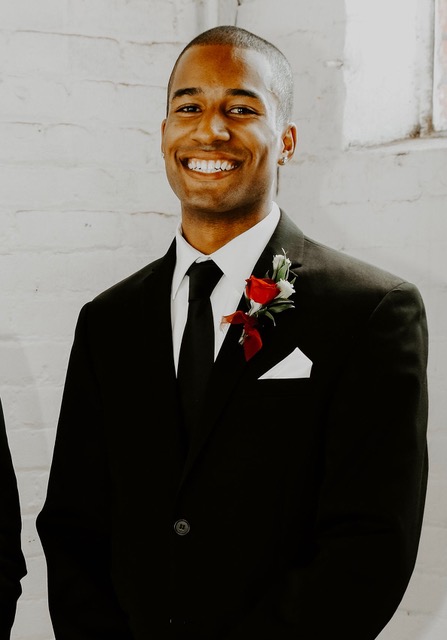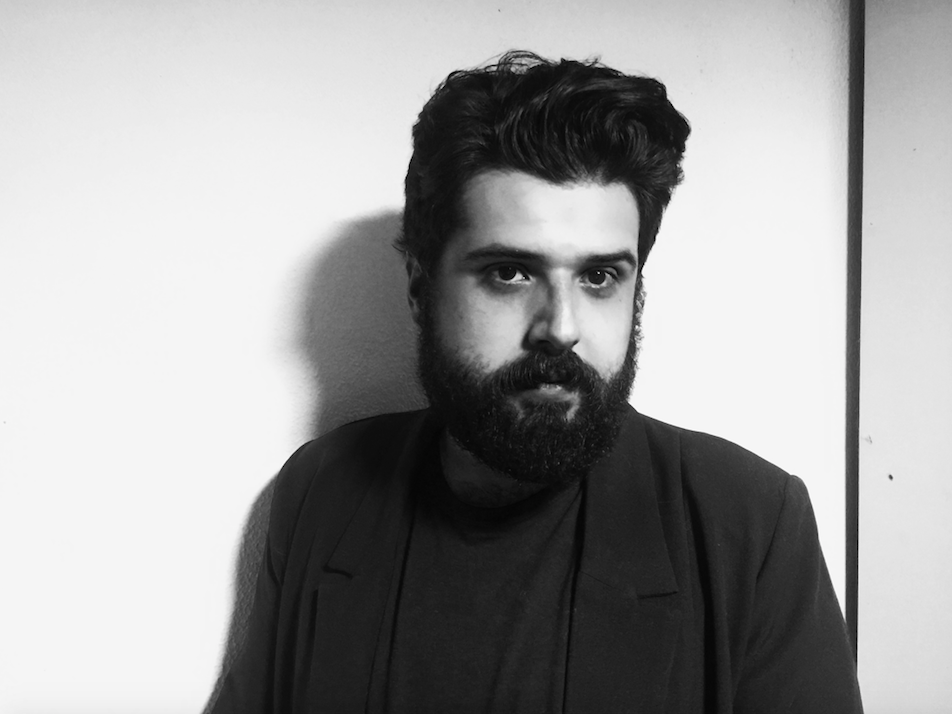
About the Interviewer: Logan Ralph is a full-time student at San Diego State University and aspiring writer. When he isn’t studying, you can usually find him toiling away on his work in progress YA novel. He further distracts himself by curating a writing blog, Writers Unblocked, and binge watching all the good stuff on Netflix. His work has been praised by his mom who likens him to a young Stephen King.

About the author: Matheus Borges (1992) was born in Porto Alegre, southern Brazil. After graduating in film school at Unisinos, he attended the celebrated literary workshop ministered by Luiz Antonio de Assis Brasil. Borges wrote the screenplay for the feature film ‘The Honeycomb’, to be released in 2019. His fiction has been published in a number of magazines, both Brazilian (Subversa, Gueto) and foreign (Waccamaw, Fiction International), as well as anthologies. Feel free to follow him on Instagram (@matheusmedeborg) or on twitter (@matheusmedeborg) or his online Portuguese portfolio.
LR: Your short story, “The Clouds”, contrasts the experiences of two men, the first and last on earth. There also seems to be a contrast of hope vs despair. In this story I get the sense that the unfamiliar leads to hopefulness with the first man. The second man however, is is so familiar with his world that he comes across as hopeless. Do you think that the unfamiliar fosters greater hope than the familiar? Does this idea influence your writing?
I’m interested in how fiction is able to take the feeling of familiarity and turn it against the reader, or even against the world. Some stories can force you to look at something as if you were seeing it for the first time. It’s amazing when you’re faced with this kind of story. Suddenly, the world is full of new meanings, ideas, and signifiers. Of course they were always there, hidden somewhere under the surface, but now you’re able to look behind the curtain. I wouldn’t say hope is associated with this act of unveiling, but certainly there’s a level of wonder, or even awe.
LR: Why did you choose to focus on the clouds in this story, and what do you hope readers will take away from this focus?
When you write a story, some mental images just impose themselves on you. They’ll take you by assault and become inseparable from the story itself. That’s what happened with the clouds. ‘Cloud’, the word, can’t be found anywhere in the story itself, only in the title. When the first man looks up to the sky, he has no word to describe what he sees. The reader, on the other hand, knows what the character is looking at. Personally, I understand these clouds as amorphous monuments to the uncertainty of the world. Of course, clouds are famous for their shapelessness, so they can be a million different things. It’s all up for the observer to decide.
LR: You touch on the idea that humans are irresponsible tenants on earth. If your story was to continue, do you think that first man would repeat the mistakes of last man’s ancestors? Or is first man seeing the world in an entirely different way?
Well, let’s talk again about hope. We already know what happens when humankind behaves in such a selfish, reckless way. It is what’s happening now, everywhere around our planet. We are living in the middle of a global climate catastrophe, and I have no hopes about a future where it doesn’t get worse from here. So, we might ask ourselves: If we could get back in time and control the fate of our species, would we take a different path? Would we take a not-fossil-fueled-capitalist path? I would, but there’s no going back in time.
LR: Last man had become extremely apathetic towards his circumstances even though they were virtually the same as first man’s. Do you think that perspective plays a big part in this difference of attitude?
Perspective is everything, as I understand. A story is a story as long as there’s someone perceiving something. Despite both men following their respective paths, one world is a desert because nothing has been invented yet, while the other is a desert because everything has already been destroyed. However, this is the same world. What happened between these two stages of generalized emptiness? One character has no idea, while the other is the only one left who knows. It’s like the match cut in the movie ‘2001: A Space Odyssey’. First, you have a flying bone, then a spaceship. What happened between them? The answer to both questions is the same: The human species.
LR: If you could continue writing the story of either characters which would you choose and why?
None, I think. I wrote ‘The Clouds’ in December 2015, as a formal experiment in mirror-storytelling. You have these two characters extracting their respective meanings out of their respective surroundings. In effect, however, the central character is this sort of shared consciousness guiding the story. They are two, yet one. This experiment led me to write a novel, called ‘As Forças Armadas’ (‘The Armed Forces’), which has yet to find a publisher. The novel, set in contemporary Brazil, also employs this mirror-storytelling mode, but in a much more radical way. ‘As Forças Armadas’ may not be a literal extension of ‘The Clouds’, but it’s certainly a methodological one.
LR: Could you see this story continuing into something longer?
Thematically, ‘The Clouds’ is interested in exploring some sort of post-industrial mythology. I felt I had to assume the voice of a fabulist, like a dystopian Aesop’s. The story had to be short, and it had to work both concretely, as a narrative with interesting characters and engaging events, and as an allegory. After writing ‘The Clouds’, I suspect this thematic frame became my main method of writing short stories. While the novel and the screenplay mostly demand you follow one logical thread from beginning to end, the short story is an invitation to establish your own rules. Since ‘The Clouds’, I’ve written a couple more stories in this dystopian fabulistic mode – which, I must recognize, owes a lot to writers like Barthelme, LeGuin, and Ballard. (Editor’s Note: Feel free to check out Matheus’ other story which uses this same dystopian fabulistic mode)
Be sure to buy our newest Fiction International: World in Pain issue featuring Matheus Borges story “The Clouds”.